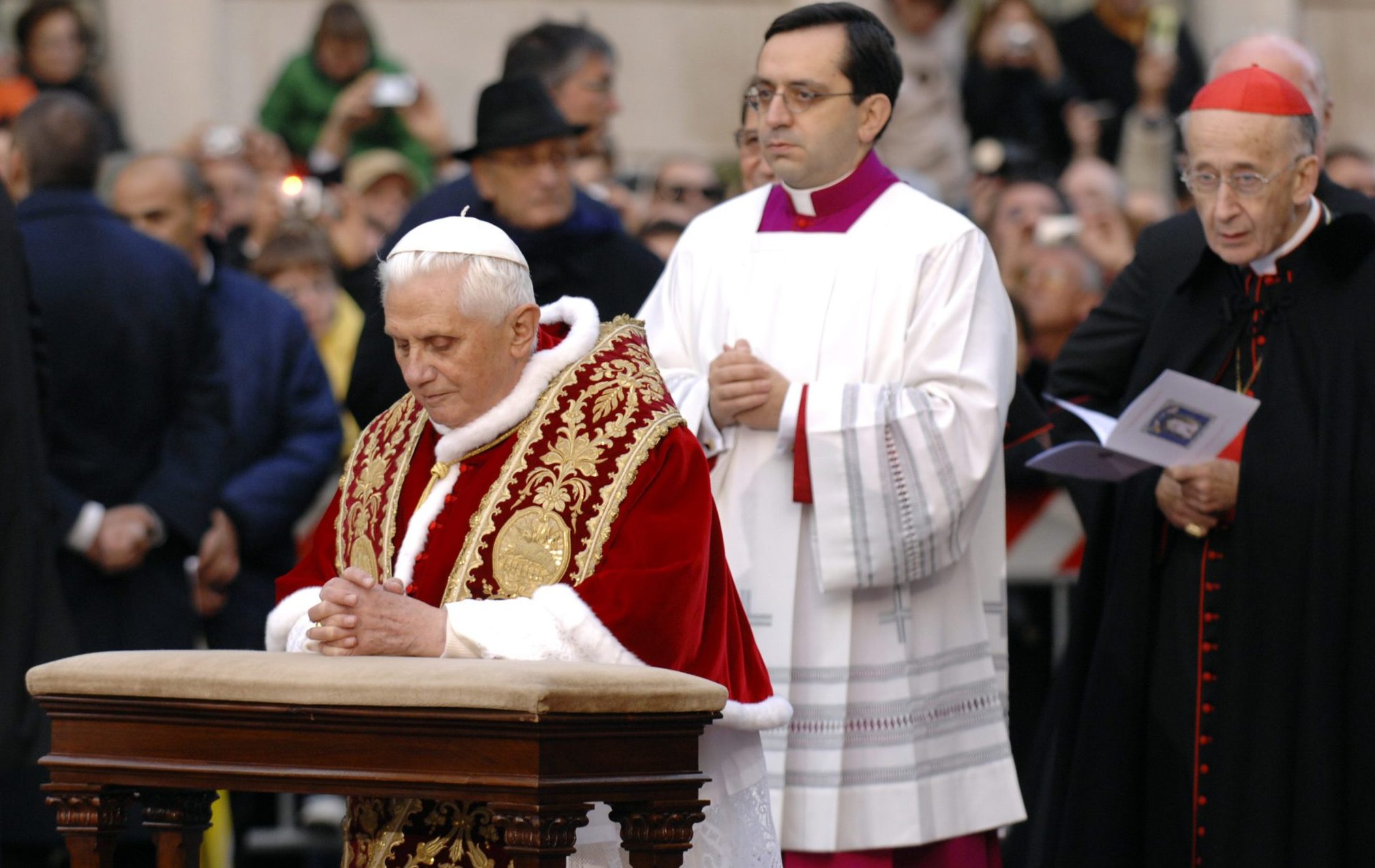What the Church Learned From the Sex-Abuse Crisis

In 1980, Peter Hullermann arrived in Munich. Hullermann was a Catholic priest; he was also a confessed child rapist, and was in the city to receive psychiatric “treatment.” The Archbishop of Munich, Joseph Ratzinger, agreed to put Fr. Hullermann up in a house owned by the diocese.
Shortly after Fr. Hullermann arrived, a diocesan official named Fr. Gerhard Gruber assigned him to a new parish. Six years later, he reoffended and was convicted of sexually abusing minors. By then, however, Archbishop Ratzinger had been working in the Vatican.
I mention this only because Archbishop Ratzinger went on to become Pope Benedict XVI.
To make matters worse, it recently came out that Benedict “misinformed” investigators about his involvement with the Hullermann case. He and Fr. Gruber both insisted then-Archbishop Ratzinger hadn’t known about Fr. Hullerman’s reassignment. Apparently, he did. In response to these reports, Benedict issued an 82-page letter in which he calls the decision a “mistake for which he begs to be excused.” As well he might.
As others have pointed out, the timing of this revelation is fortuitous. Its source is the Archdiocese of Munich itself, which has since become the global hub of progressive Catholicism. It happens to coincide with a decision by Pope Francis to undo many of his predecessor’s liturgical reforms. As pope, Benedict had relaxed the Church’s regulations on the Traditional Latin Mass (TLM); Francis is tightening them up again.
Munich may have timed these reports to discredit Benedict—who, at 94, is no longer able to defend himself. But that doesn’t mean they’re untrue.
Careful readers may be asking, Why didn’t Fr. Hullermann go to jail the first time? And, when his crimes became public, why wasn’t Fr. Gruber prosecuted for covering them up? They’re questions the media isn’t quite willing to answer.
The fact is that, from the 1960s through the 1990s, most psychiatrists believed that sex offenders ought to be treated rather than punished. Institutions like the Catholic Church were urged by experts not to turn offenders over to law enforcement. Prisons weren’t equipped for the kind of therapy these predators needed to get well, the thinking went.
And no, it wasn’t just Munich. A 1992 article for the Boston Globe argued that pervert-priests could be treated with behavioral therapy and then returned to active ministry. Cardinal Bernard Law, Archbishop of Boston, took their advice. He institutionalized dozens of predators; when doctors declared them “fixed,” they were moved to a new parish.
Then, of course, in 2001, the Globe’s “Spotlight” investigations made public thousands of allegations against Boston priests. Cardinal Law was disgraced. Thousands have renounced their faith. Vocations to the clergy have dwindled. To date, the Archdiocese has paid over $120 million to the priests’ alleged victims.
Clearly, both Pope Benedict and Cardinal Law suffered a major lapse in judgment—as did bishops around the world. But the truth is that virtually anyone else in their position would have done the same. They were following the current medical orthodoxies. They “trusted the science.”
Seriously, imagine if in 2042 the New York Times wrote a scathing series of editorials blaming Catholic schools in the Big Apple for closing down in 2020, and then requiring children to wear facemasks in class in 2021. They accused the Church of failing in its mission to educate children, as well as stunting their social development. First of all, they’d be right! Though it would also be unfair to place the blame solely on the Catholic Church. Obviously. But imagine if Catholics who complained about the Times report were then accused of “deflecting blame.”
Hopefully this isn’t about playing the blame-game. Hopefully it’s about making sure that past mistakes aren’t made again. If so, the Church has to take its lumps. It can’t be a scapegoat, though.
If the bishops have learned their lesson, we should expect two outcomes. First, instances of sexual abuse will have declined. And they have—quite steeply. Secondly, they will not mindlessly adopt the medical establishment’s latest orthodoxies. Here, too, the Church is holding its own.
For instance, last year, the American Medical Association officially warned state governments not to “interfere” with doctors who want to provide children with “gender-affirming hormone therapy and/or gender-affirming surgeries.” There’s a 100-percent chance the AMA will revise its position as people who’ve made life-altering medical decisions in childhood grow up sickly and sterile. It’s not a question of if, but when.
The Church is one of the few institutions in the Western world that’s resisting the transgender tide. For that, it’s widely mocked and condemned—usually by the same folks who think all Catholic priests are pedophiles.
As a Catholic, I’m glad to see that the bishops are learning. As a human being, I’m alarmed by how many of my fellow citizens are not. Whether it’s pandemic regulations or “gender-affirming healthcare,” the medical establishment is still facilitating child abuse. And let’s not get started on abortion.
Honestly, judging from how many news outlets picked up the story about Pope Benedict and Fr. Hullermann, you’d think our top priority was securing the welfare of our youth. The whole world is talking about this forty-year-old German abuse case. We must really care about kids!
If only that were true. If only the rest of the world had learned from the Catholic Church’s sex-abuse crisis, as the Catholic Church did.
I don’t expect that view to be popular, though it happens to be true.
Michael Warren Davis is author of The Reactionary Mind. Subscribe to his newsletter, “The Common Man”.
Comments